Facilities
The department has well equipped smart class rooms for UG and PG, Computer Networking center with internet speed of 1000Mbps, Air conditioned seminar hall with seating capacity of 60. The department has the following equipments for the students usage. 2-D Gel electrophoresis, Flash evaporator, Gel documentation system, UV-Vis Spectrophotometer, Deep Freezers (-70 °C), Freezers (-20 °C), Vacuum gel dryer, Hybridization oven, Ultra centrifuges, Thermal cyclers, Microplate reader, Nanodrop, Lyophilizer, Real Time PCR, HPLC, Trans blot SD semi-dry transfer system, Refrigerated high speed centrifuges, Scanning Microscope etc.
FIST Lab
Department of Plant Pathology, CPPS has received recommendation on a five-year project from Department of Science & Technology fund for improvement of S&T to strengthen the teaching and research facilities in the Department. This Laboratory is equipped with Real Time PCR, Scanning Microscope, Autoclaves, Laminar flow chamber, Deep freezer (-80ºC), Cooling centrifuge, microwave oven and Net Working facility with 15 computers.

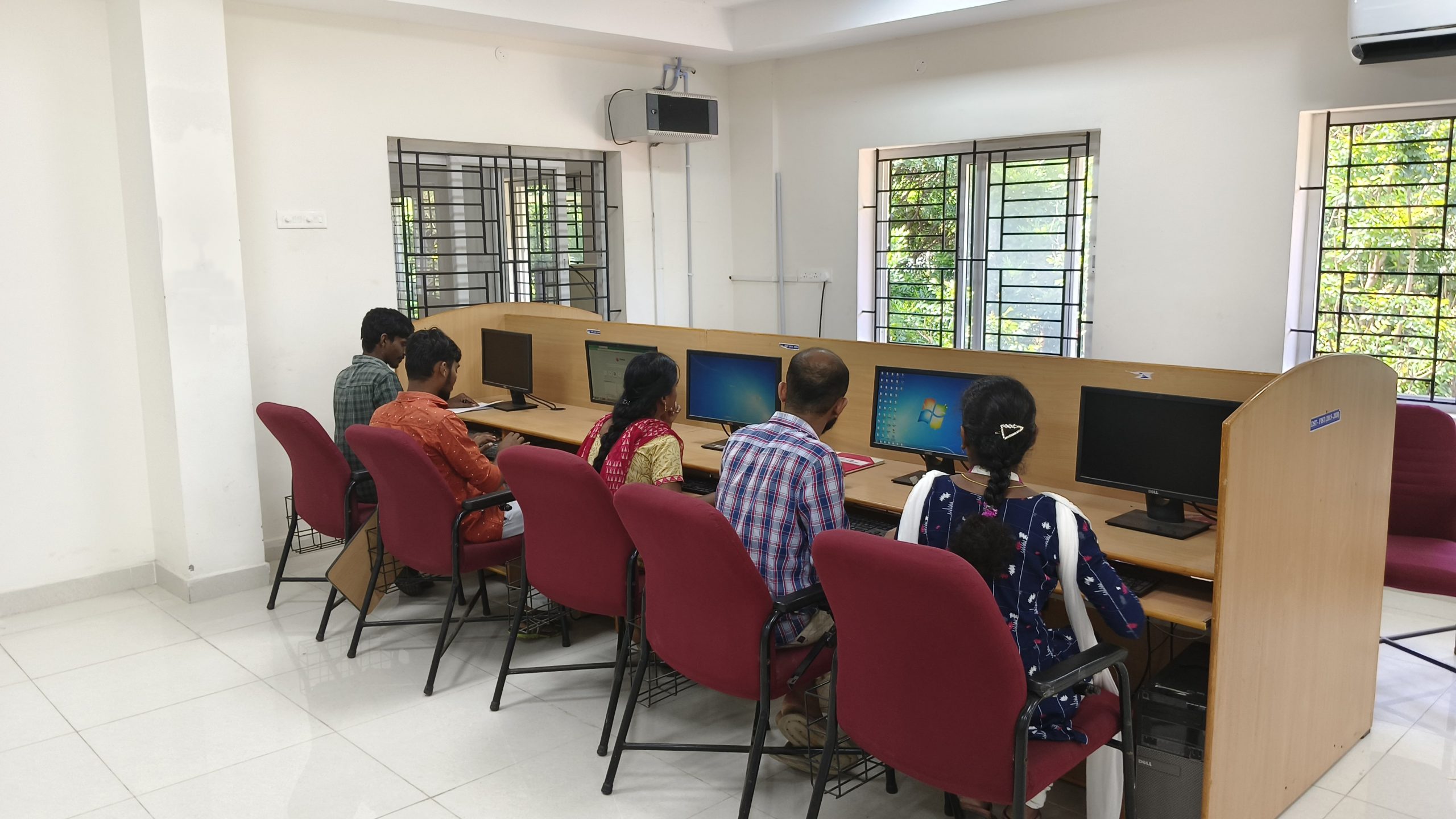
 FIST Library
FIST Library
UGC-SAP-DRS1 Laboratory
A well equipped laboratory facilities for research work on biodiversity, conservation, morphological and molecular characterization, extraction and purification of antimicrobial molecules from macrobasidiomycetes fungi, preparation of biomanure and animal feed from spent mushroom substrate.
Laboratory is equipped with automatic autoclaves, Laminar flow chamber, PCR machine, Deep freezer (-80ºC),Vacuum flash evaporator, Cooling centrifuge, temperature controlled incubator shaker and microwave oven.

Mycology and bacteriology lab
This laboratories are equipped with state-of-the-art equipment to study various aspects of mycology and bacteriology. This laboratory is equipped with modern microscopes and equipment designed to grow, identify and enumerate microbes through morphological, molecular, and biochemical techniques. Equipped with Biosafety hoods to safely study pathogenic microbes and work with tissue cultures. It also has advanced microscopes for viewing fluorescence and tissue culture samples, and modern equipment used in fungal diagnostics.
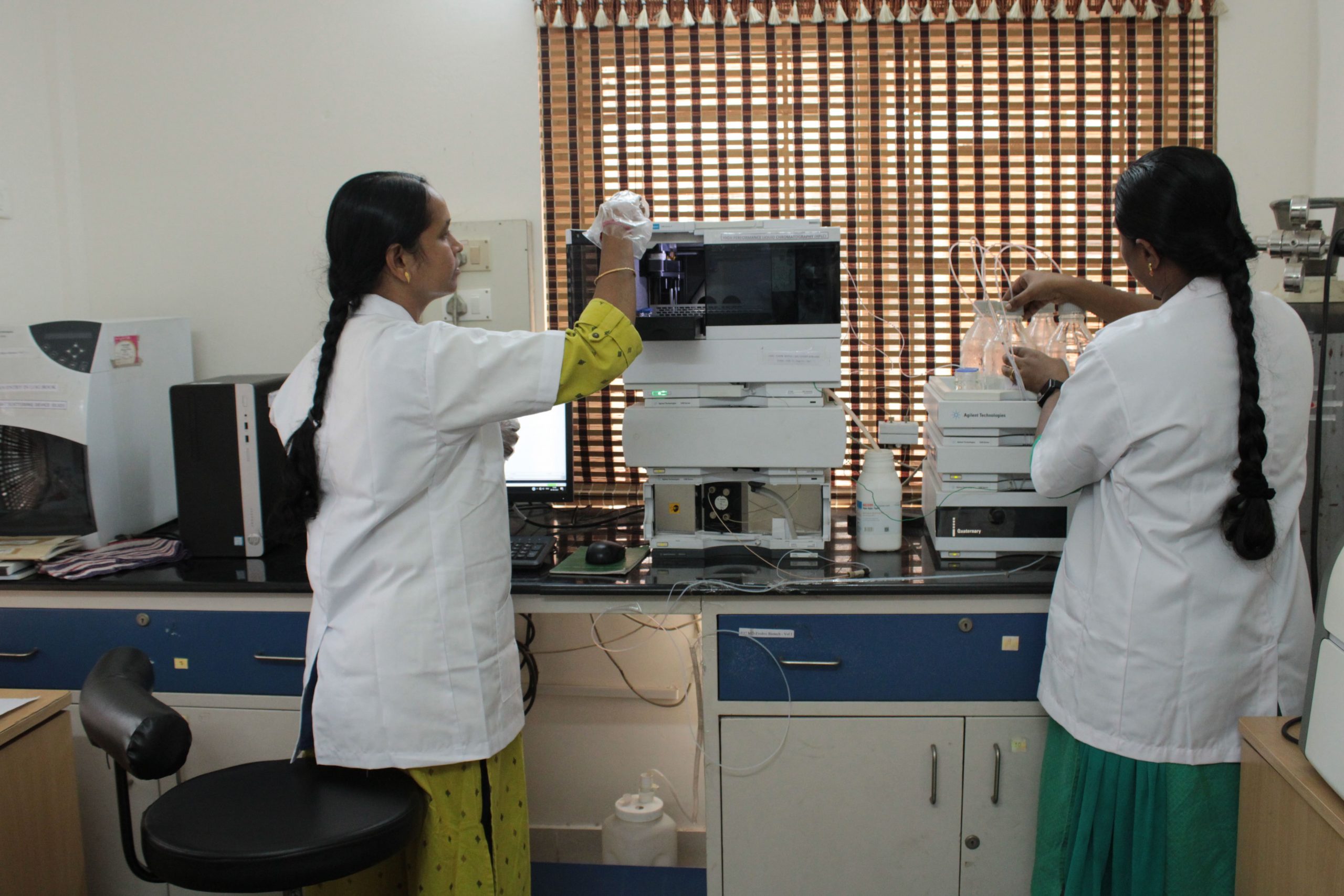
Mycotoxin detection – HPLC Analysis
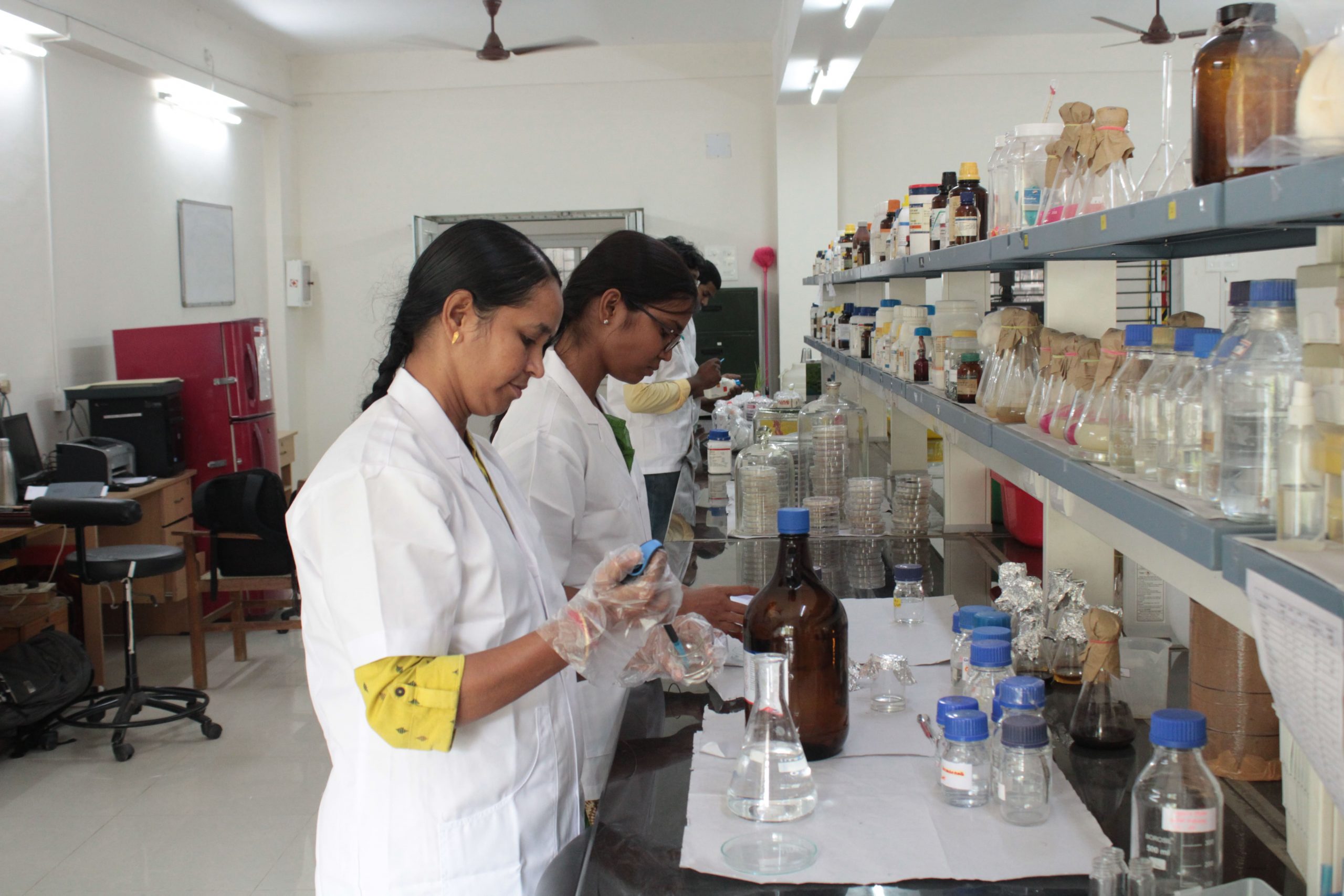

Lyophilizer
Biocontrol lab
The quest to continually improve on solutions for comprehensive disease management in the bio-control field led to the establishment of Trichoderma and Pseudomonas Laboratories in this Department. TNAU is the first in India develop Talc based biocontrol agents commercially in early 90’s. The underlying objective was to perfect lab-to-land technology; i.e., developing delivery mechanisms for various bio-control agents so that they are made available to end-users in different parts of the country at reasonable rates. The lab paved the path for eco-friendly and integrated pest management techniques for various crop plants. The major activities of biocontrol lab are isolation, evaluation and release of biocontrol agents as well as research to genetically improve beneficial organisms. Major Biocontrol agent deal by as are Trichoderma viride (T. asperellum), Pseudomonas fluorescens, Bacillus subtilis, Chaetomium globosum, Ampelomyces quisqualis, Beauveria bassiana etc.

PGPR – Mass Multiplication System
Virology lab
The systematic plant virus studies were initiated at the department of Plant Pathology, TNAU, Coimbatore under the able guidance of Prof. K. Ramakrishnan. He and his dedicated team of research workers contributed for the identification of etiological agents of cassava mosaic disease, big bud disease of tomato, management of citrus tristeza disease through cross protection and aerated steam therapy of sugarcane diseases. This pursuit flourished further under the leadership of Prof. P. Narayanaswamy, Prof. Sabitha Doraisamy, Prof. M. Ramaiah and Prof. R. Rabindran. At present the Plant Virology research work is being continued with half a dozen of budding scientists.
Molecular diagnostics based on labeled nucleic acid probes, ds RNA anlysis, Polymerase chain reaction (PCR), Reverse transcription polymerase chain reaction (RT-PCR), Immunocapture Polymerase chain reaction (IC-PCR) and multiplex Polymerase chain reaction (M-PCR) techniques have been developed and used for the detection and identification of several RNA and DNA viruses infecting different crops.
The IPM packages have been developed for the management of virus diseases in different agro-eco systems of Tamil Nadu. Currently our research focus is on the characterization of different plant viruses and relationships with their insect vectors; exploiting RNA silencing approach for the management of viruses viz., GBNV, TSV and CMV.
This Laboratory is equipped with autoclaves, Laminar flow chamber, PCR machine, Deep freezer (-80ºC),Vacuum flash evaporator, Electrophoresis units, Gel documentation unit, Cooling centrifuge, temperature controlled incubator shaker and microwave oven.

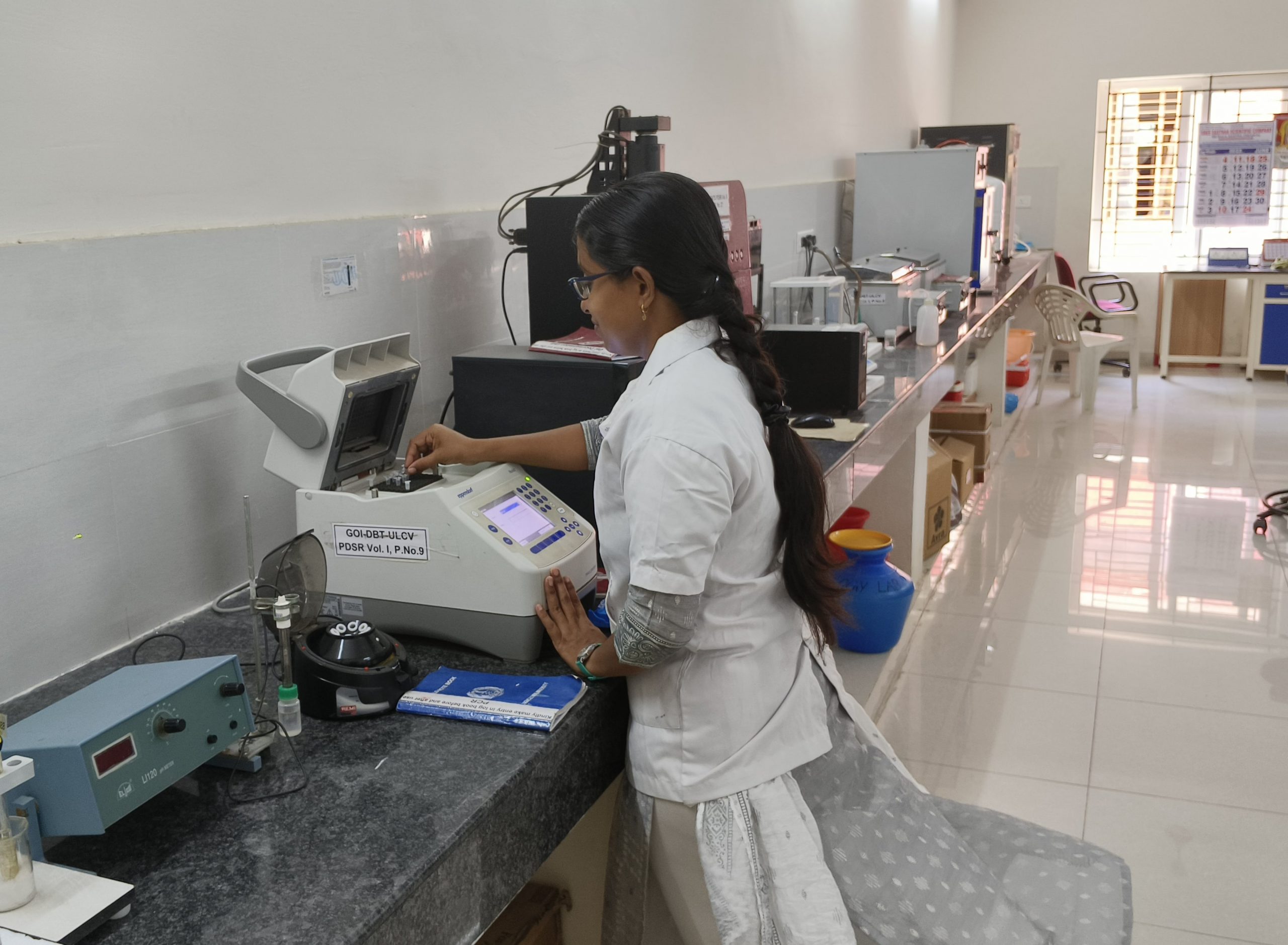
Virology laboratory
UG Laboratory
This lab is being utilized for conducting practical’s of UG courses of various degree programme. Laboratory is well equipped with instruments like Microscope (75 Nos), AV aids, Image analysis system for Pathogens documentation, Herbarium Collections (More than 1000 specimens), Pathogen Preserved Slides (200 Nos), Diseases cycle chart (60 Nos) etc.
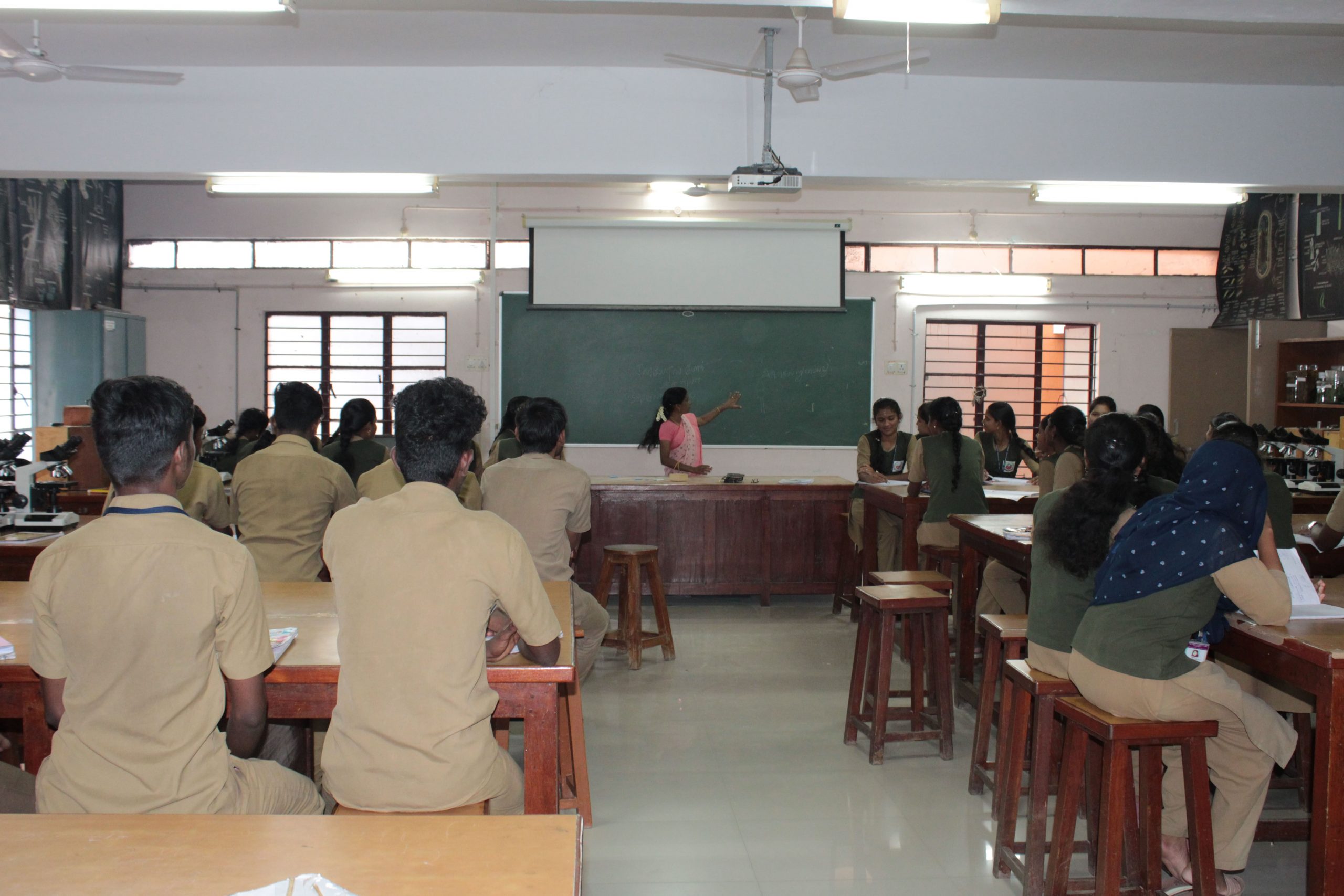
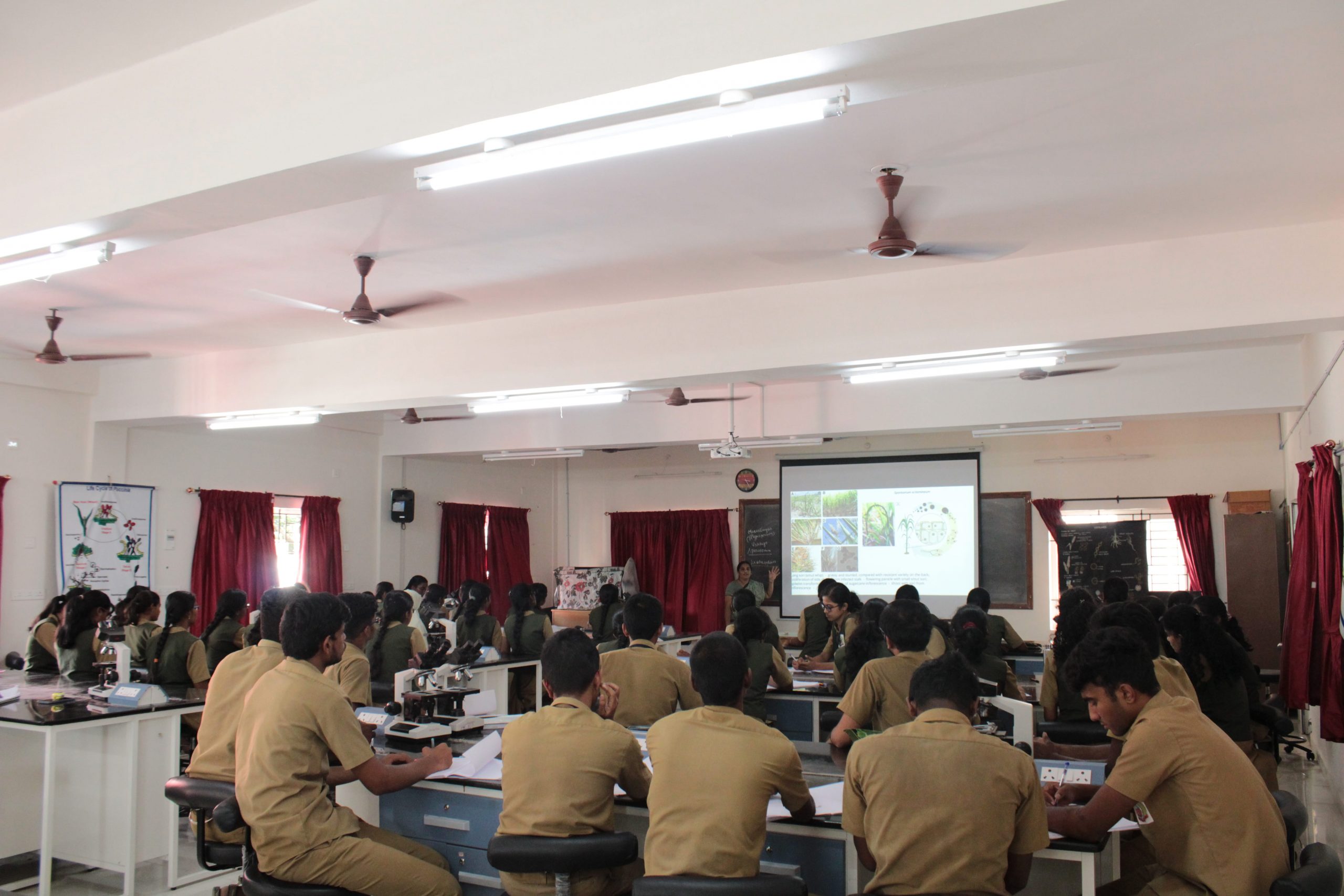
New UG Laboratory
PG Laboratory
The laboratory is primarily intended for research and practical experimentation for the PG and PhD students. It is supplied with large benches, equipment and apparatuses (Microscopes, Laminar air Flow Chamber, Autoclave, Electrophoresis units, Deep freezer -80C, Storage cabins etc.) used to carry out experimental activities for teaching and demonstration purposes. Video projection system for on-screen display of experiments is also available.
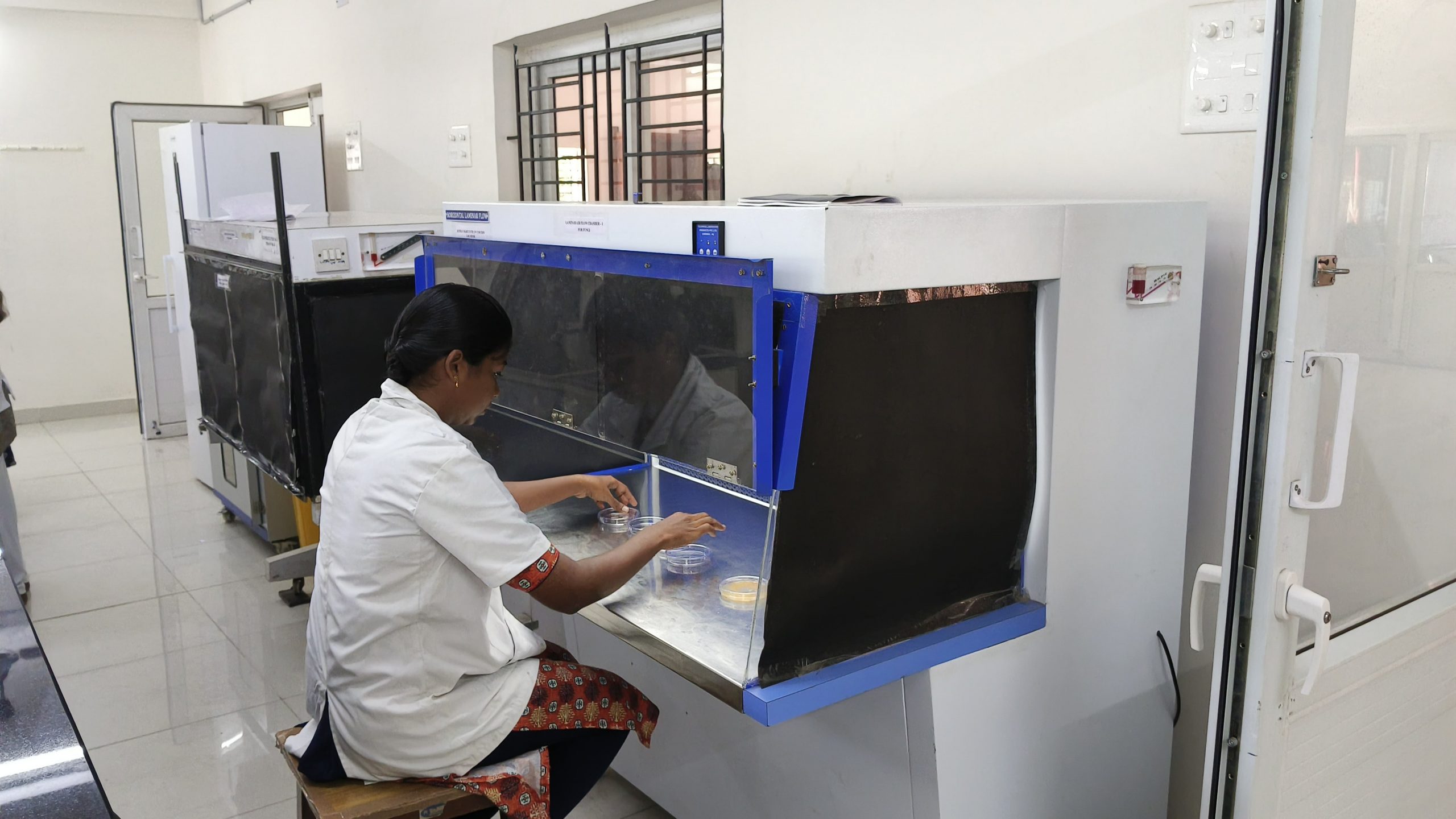
Mushroom Research and Training Centre
Mushroom Research and Training Centre has well equipped separate laboratories for mushroom culture maintenance tissue culture, spawn preparation, substrate processing chmaber, bed preparation chamber and cropping houses for oyster and milky mushroom. Research laboratories are well equipped with automatic autoclaves, laminar flow chamber, Hot air oven, microwave oven and refrigerators, chaff cutter.
Research activities of ICAR- All India Coordinated Mushroom Improvement Project and Venture Capital scheme on Mushrooms are being operated with main focus to collect wild mushrooms and to identify the best performing strains suitable for edibility and popularization of mushroom cultivation technology to farmers, woman self help groups, school and college children.

Rockfeller Glass House / PL 480 Lab

Rockfeller and PL 480 Galss house facility are created for the purpose of conducting controlled conditional Plant Pathology experiments. This glass house is provided with benches, climate-controlled atmosphere, insect-proof nets and shades for carry out research related to fungi, bacteria and virus.

Culture collection
The Culture Collection was established in the Department of Plant Pathology, TNAU, Coimbatore with a view to collection and documentation of Plant Pathogenic and Beneficial Microorganism in this region. Most of these cultuers have been maintained, mainly as working collection, by individual researchers for short to long term period of time. Our aim of establishment is to provide cultures for research projects, education and for sustainable use in the future. So for we are maintaining 120 numbers of cultures obtained from various sources.


